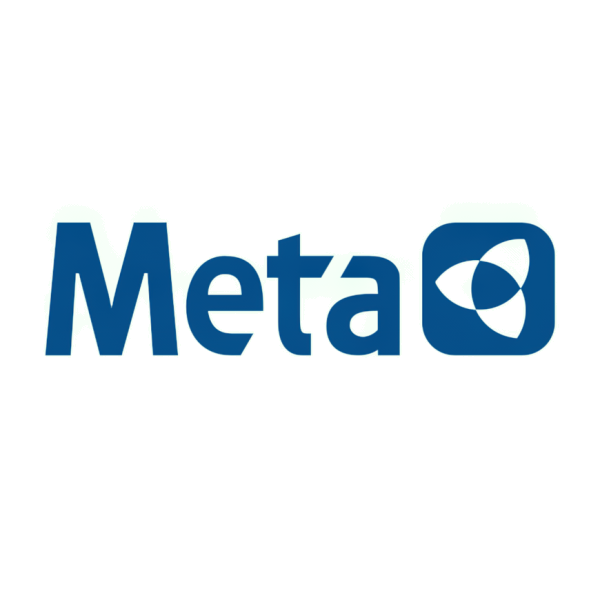Fintech
Fintech company Clair partners with Check to seamlessly offer on-demand pay, allowing employers to offer free, compliant pay advances to their workforce

Fintech company Clair has partnered with payroll infrastructure company Check to offer seamless on-demand payment solutions for employers.
Clair’s proprietary platform integrates flexible pay options into Workforce Management (WFM) systems using low-code technology, enabling companies to provide compliant payroll advances without developing new software. This partnership highlights Check’s commitment to delivering financial benefits, with the first launch through Eddy, an HR suite, reaching thousands of employees across hundreds of companies.
As the needs of the modern workforce evolve, technology integration and modernization are critical, with a significant percentage of employers and employees highlighting the importance of financial wellness services. Clair’s partnership with Check aims to address these needs by providing financial flexibility and streamlining payroll processes. Clair is supported by its partnership with FDIC-insured Pathward, which ensures compliance and reliability in its services.
06/27/2024 – 10:00 AM
Clair’s proprietary platform enables companies to integrate flexible pay into their workforce management (WFM) systems, with low-code technology
NEW YORK–(BUSINESS WIRE)–
ClearThe pioneering fintech company offering free earned pay advances originated in Pathward®, NA, today announced a new partnership with payroll infrastructure company Check. Clair is Check’s first Earned Wage Access (EWA) partner and represents a milestone in its commitment to providing financial benefits. With the integration, platforms that use Check to build and launch their payroll businesses can seamlessly choose to offer Clair’s fully compliant on-demand payment solution, without having to build any software. Check works with dozens of category-leading platforms like Novo, Homebase, and Wave, paying hundreds of thousands of employees every month.
Check channel partner Vortexan all-in-one HR suite for hiring, onboarding, managing and paying employees, is the first to implement access to Clair services via the Check API. Eddy will provide Clair’s on-demand payment services to thousands of employees across hundreds of companies.
Clair and Check are launching this unique solution at a time when WFM systems are looking to modernize their approach to employee management to align with today’s digital workforce.
-
More than half of employers (58%) say technology integration is a top area of improvement for payroll providers, and another 29% say technology modernization is a top concern.
-
In the meantime, 68% of employees reported using financial wellness services provided by their employers in 2023, up from 51% in 2012, demonstrating growing demand and use of these benefits.
To solve these problems, Check has partnered with Clair to make its cutting-edge technology available to Check partners, making it easier for them to offer financial benefits to their employees, allowing them to access their paychecks when they need it, before payday.
“As the needs of the modern workforce evolve, we are constantly evolving our products to deliver the experiences employers need to future-proof their businesses,” said Kevin Hollingshead, Check’s head of partnerships. “It is clear to us that the popularity of pay on demand will continue to grow. Clair is the innovator in this space, so it was a natural decision to partner to integrate their leading EWA solution into our partner offerings. We believe this will give our platforms a competitive advantage in attracting and retaining the essential people who power their businesses.”
“By revolutionizing the way employers and HR platforms approach on-demand pay, we are ushering in a new era of financial freedom and flexibility for workers,” said Nico Simko, co-founder and CEO of Clair. “Our pioneering technology simplifies the process of providing compliant salary advances, making us the trusted partner of choice for HR and payroll platforms at the cutting edge of modern finance. In partnership with Check, we are poised to unlock new levels of satisfaction and productivity for companies that want to raise the bar on benefits for the financial well-being of their workforce.”
Clair offers access to its on-demand payment solutions to more than a dozen HR platform partners and plans to continue its strategic partnerships with leaders in the payroll and benefits industry, having already provided millions of dollars in salary advances. Clair’s fully compliant pay advance solution offers peace of mind to Clair partners, powered by its partnership with FDIC-insured National Bank Path.
To learn more about Clair and how to integrate its on-demand payment solutions into your workforce management platforms, visit https://getclair.com/embedded.
About Clair
Clair is the pioneering fintech company offering free salary advances originated by a national bank. Clair helps professionals get paid before payday, supported by its partnership with FDIC-insured Pathward National Bank, NA Clair is available at more than 10,000 employers and more than a dozen workforce management platforms for Help increase employee retention and financial well-being when there is a shortage of frontline workers. Clair is based in New York and has raised $45 million in VC equity funding from investors including Thrive Capital, Upfront Ventures, Kairos and Founder Collective. For more information visit getclair.com.
Check information
Check is a payroll infrastructure company whose mission is to make it easy for people to pay. Its platform offers everything businesses need to build, launch and scale a payroll business, including Check’s intuitive API; Components, which allow flexible and customizable solutions; and an intuitive customer management dashboard, Console. The company partners with leading companies in vertical SaaS, workforce management, financial services and people management and supports all 50 states plus DC. To find out more, visit Italian: https://www.checkhq.com.
About Pathward®
Pathward®, N.A., a national bank, is a subsidiary of Pathward Financial, Inc. (Nasdaq: CASH). Pathward is a US-based financial empowerment company driven by its goal to enhance financial inclusion. Pathward is committed to increasing availability, choice and financial opportunities in our Banking as a Service and Commercial Finance lines of business. Strategic Business Lines provide end-to-end support to individuals and businesses. Find out more about route.com.
Clair is a financial technology company, not a bank. Clair Spending is a demand deposit account established by, and the Clair Debit Card is issued by, Pathward, NA, Member FDIC. Mastercard® and the circle design are registered trademarks of Mastercard International Incorporated. The Clair Savings Account is established by Pathward, N.A., Member FDIC. Advances provided by Pathward, NA
While Earned Pay Advances are free, other fees may apply depending on how users utilize their account.
View the original version on businesswire.com: https://www.businesswire.com/news/home/20240627761481/en/
Press contact:
press@getclair.com
Source: check
FAQ
What does the new partnership between Clair and Check consist of?
Clair and Check have partnered to offer seamless on-demand payment solutions, allowing employers to provide compliant pay advances without the need to build new software.
How does the Clair platform benefit employers who use Check?
Clair’s platform uses low-code technology to integrate flexible pay options into workforce management systems, enabling employers to easily offer pay advances.
Who is the first to launch Clair’s on-demand payment services?
Eddy, an all-in-one HR suite, is the first to launch Clair’s on-demand payment services via the Check API.
What percentage of employees used financial wellness services in 2023?
In 2023, 68% of employees used financial wellness services provided by their employers.
How does the Clair and Check partnership address the needs of the modern workforce?
The partnership addresses modern workforce needs by providing financial flexibility, integrating advanced technologies and streamlining salary advance processes.
What ensures compliance and reliability of Clair services?
Clair ensures compliance and reliability through its partnership with FDIC-insured Pathward National Bank.
Fintech
US Agencies Request Information on Bank-Fintech Dealings

Federal banking regulators have issued a statement reminding banks of the potential risks associated with third-party arrangements to provide bank deposit products and services.
The agencies support responsible innovation and banks that engage in these arrangements in a safe and fair manner and in compliance with applicable law. While these arrangements may offer benefits, supervisory experience has identified a number of safety and soundness, compliance, and consumer concerns with the management of these arrangements. The statement details potential risks and provides examples of effective risk management practices for these arrangements. Additionally, the statement reminds banks of existing legal requirements, guidance, and related resources and provides insights that the agencies have gained through their oversight. The statement does not establish new supervisory expectations.
Separately, the agencies requested additional information on a broad range of arrangements between banks and fintechs, including for deposit, payment, and lending products and services. The agencies are seeking input on the nature and implications of arrangements between banks and fintechs and effective risk management practices.
The agencies are considering whether to take additional steps to ensure that banks effectively manage the risks associated with these different types of arrangements.
SUBSCRIBE TO THE NEWSLETTER
And get exclusive articles on the stock markets
Fintech
What changes in financial regulation have impacted the development of financial technology?

Exploring the complex landscape of global financial regulation, we gather insights from leading fintech leaders, including CEOs and finance experts. From the game-changing impact of PSD2 to the significant role of GDPR in data security, explore the four key regulatory changes that have reshaped fintech development, answering the question: “What changes in financial regulation have impacted fintech development?”
- PSD2 revolutionizes access to financial technology
- GDPR Improves Fintech Data Privacy
- Regulatory Sandboxes Drive Fintech Innovation
- GDPR Impacts Fintech Data Security
PSD2 revolutionizes access to financial technology
When it comes to regulatory impact on fintech development, nothing comes close to PSD2. This EU regulation has created a new level playing field for market players of all sizes, from fintech startups to established banks. It has had a ripple effect on other markets around the world, inspiring similar regulatory frameworks and driving global innovation in fintech.
The Payment Services Directive (PSD2), the EU law in force since 2018, has revolutionized the fintech industry by requiring banks to provide third-party payment providers (TPPs) with access to payment services and customer account information via open APIs. This has democratized access to financial data, fostering the development of personalized financial instruments and seamless payment solutions. Advanced security measures such as Strong Customer Authentication (SCA) have increased consumer trust, pushing both fintech companies and traditional banks to innovate and collaborate more effectively, resulting in a dynamic and consumer-friendly financial ecosystem.
The impact of PSD2 has extended beyond the EU, inspiring similar regulations around the world. Countries such as the UK, Australia and Canada have launched their own open banking initiatives, spurred by the benefits seen in the EU. PSD2 has highlighted the benefits of open banking, also prompting US financial institutions and fintech companies to explore similar initiatives voluntarily.
This has led to a global wave of fintech innovation, with financial institutions and fintech companies offering more integrated, personalized and secure services. The EU’s leadership in open banking through PSD2 has set a global standard, promoting regulatory harmonization and fostering an interconnected and innovative global financial ecosystem.
Looking ahead, the EU’s PSD3 proposals and Financial Data Access (FIDA) regulations promise to further advance open banking. PSD3 aims to refine and build on PSD2, with a focus on improving transaction security, fraud prevention, and integration between banks and TPPs. FIDA will expand data sharing beyond payment accounts to include areas such as insurance and investments, paving the way for more comprehensive financial products and services.
These developments are set to further enhance connectivity, efficiency and innovation in financial services, cementing open banking as a key component of the global financial infrastructure.
General Manager, Technology and Product Consultant Fintech, Insurtech, Miquido
GDPR Improves Fintech Data Privacy
Privacy and data protection have been taken to another level by the General Data Protection Regulation (GDPR), forcing fintech companies to tighten their data management. In compliance with the GDPR, organizations must ensure that personal data is processed fairly, transparently, and securely.
This has led to increased innovation in fintech towards technologies such as encryption and anonymization for data protection. GDPR was described as a top priority in the data protection strategies of 92% of US-based companies surveyed by PwC.
Financial Expert, Sterlinx Global
Regulatory Sandboxes Drive Fintech Innovation
Since the UK’s Financial Conduct Authority (FCA) pioneered sandbox regulatory frameworks in 2016 to enable fintech startups to explore new products and services, similar frameworks have been introduced in other countries.
This has reduced the “crippling effect on innovation” caused by a “one size fits all” regulatory approach, which would also require machines to be built to complete regulatory compliance before any testing. Successful applications within sandboxes give regulators the confidence to move forward and address gaps in laws, regulations, or supervisory approaches. This has led to widespread adoption of new technologies and business models and helped channel private sector dynamism, while keeping consumers protected and imposing appropriate regulatory requirements.
Co-founder, UK Linkology
GDPR Impacts Fintech Data Security
A big change in financial regulations that has had a real impact on fintech is the 2018 EU General Data Protection Regulation (GDPR). I have seen how GDPR has pushed us to focus more on user privacy and data security.
GDPR means we have to handle personal data much more carefully. At Leverage, we have had to step up our game to meet these new rules. We have improved our data encryption and started doing regular security audits. It was a little tricky at first, but it has made our systems much more secure.
For example, we’ve added features that give users more control over their data, like simple consent tools and clear privacy notices. These changes have helped us comply with GDPR and made our customers feel more confident in how we handle their information.
I believe that GDPR has made fintech companies, including us at Leverage, more transparent and secure. It has helped build trust with our users, showing them that we take data protection seriously.
CEO & Co-Founder, Leverage Planning
Related Articles
Fintech
M2P Fintech About to Raise $80M

Application Programming Interface (API) Infrastructure Platform M2P Financial Technology has reached the final round to raise $80 million, at a valuation of $900 million.
Specifically, M2P Fintech, formerly known as Yap, is closing a new funding round involving new and existing investors, according to entrackr.com. The India-based company, which last raised funding two and a half years ago, previously secured $56 million in a round led by Insight Partners, earning a post-money valuation of $650 million.
A source indicated that M2P Fintech is ready to raise $80 million in this new funding round, led by a new investor. Existing backers, including Insight Partners, are also expected to participate. The new funding is expected to go toward enhancing the company’s technology infrastructure and driving growth in domestic and international markets.
What does M2P Fintech do?
M2P Fintech’s API platform enables businesses to provide branded financial services through partnerships with fintech companies while maintaining regulatory compliance. In addition to its operations in India, the company is active in Nepal, UAE, Australia, New Zealand, Philippines, Bahrain, Egypt, and many other countries.
Another source revealed that M2P Fintech’s valuation in this funding round is expected to be between USD 880 million and USD 900 million (post-money). The company has reportedly received a term sheet and the deal is expected to be publicly announced soon. The Tiger Global-backed company has acquired six companies to date, including Goals101, Syntizen, and BSG ITSOFT, to enhance its service offerings.
According to TheKredible, Beenext is the company’s largest shareholder with over 13% ownership, while the co-founders collectively own 34% of the company. Although M2P Fintech has yet to release its FY24 financials, it has reported a significant increase in operating revenue. However, this growth has also been accompanied by a substantial increase in losses.
Fintech
Scottish financial technology firm Aveni secures £11m to expand AI offering

By Gloria Methri
Today
- To come
- Aveni Assistance
- Aveni Detection
Artificial intelligence Financial Technology Aveni has announced one of the largest Series A investments in a Scottish company this year, amounting to £11 million. The investment is led by Puma Private Equity with participation from Par Equity, Lloyds Banking Group and Nationwide.
Aveni combines AI expertise with extensive financial services experience to create large language models (LLMs) and AI products designed specifically for the financial services industry. It is trusted by some of the UK’s leading financial services firms. It has seen significant business growth over the past two years through its conformity and productivity solutions, Aveni Detect and Aveni Assist.
This investment will enable Aveni to build on the success of its existing products, further consolidate its presence in the sector and introduce advanced technologies through FinLLM, a large-scale language model specifically for financial services.
FinLLM is being developed in partnership with new investors Lloyds Banking Group and Nationwide. It is a large, industry-aligned language model that aims to set the standard for transparent, responsible and ethical adoption of generative AI in UK financial services.
Following the investment, the team developing the FinLLM will be based at the Edinburgh Futures Institute, in a state-of-the-art facility.
Joseph Twigg, CEO of Aveniexplained, “The financial services industry doesn’t need AI models that can quote Shakespeare; it needs AI models that deliver transparency, trust, and most importantly, fairness. The way to achieve this is to develop small, highly tuned language models, trained on financial services data, and reviewed by financial services experts for specific financial services use cases. Generative AI is the most significant technological evolution of our generation, and we are in the early stages of adoption. This represents a significant opportunity for Aveni and our partners. The goal with FinLLM is to set a new standard for the controlled, responsible, and ethical adoption of generative AI, outperforming all other generic models in our select financial services use cases.”
Previous Article
Network International and Biz2X Sign Partnership for SME Financing
IBSi Daily News Analysis

SMBs Leverage Cloud to Gain Competitive Advantage, Study Shows
IBSi FinTech Magazine

- The Most Trusted FinTech Magazine Since 1991
- Digital monthly issue
- Over 60 pages of research, analysis, interviews, opinions and rankings
- Global coverage
subscribe now
-

 DeFi12 months ago
DeFi12 months agoDeFi Technologies Appoints Andrew Forson to Board of Directors
-

 Fintech12 months ago
Fintech12 months agoUS Agencies Request Information on Bank-Fintech Dealings
-

 News1 year ago
News1 year agoBlock Investors Need More to Assess Crypto Unit’s Earnings Potential, Analysts Say — TradingView News
-

 DeFi12 months ago
DeFi12 months agoSwitchboard Revolutionizes DeFi with New Oracle Aggregator
-

 DeFi12 months ago
DeFi12 months agoIs Zypto Wallet a Reliable Choice for DeFi Users?
-

 News1 year ago
News1 year agoBitcoin and Technology Correlation Collapses Due to Excess Supply
-

 Fintech12 months ago
Fintech12 months agoWhat changes in financial regulation have impacted the development of financial technology?
-

 Fintech12 months ago
Fintech12 months agoScottish financial technology firm Aveni secures £11m to expand AI offering
-

 Fintech12 months ago
Fintech12 months agoScottish financial technology firm Aveni raises £11m to develop custom AI model for financial services
-

 News1 year ago
News1 year agoValueZone launches new tools to maximize earnings during the ongoing crypto summer
-

 Videos6 months ago
Videos6 months ago“Artificial intelligence is bringing us to a future that we may not survive” – Sco to Whitney Webb’s Waorting!
-

 DeFi1 year ago
DeFi1 year agoTON Network Surpasses $200M TVL, Boosted by Open League and DeFi Growth ⋆ ZyCrypto
















